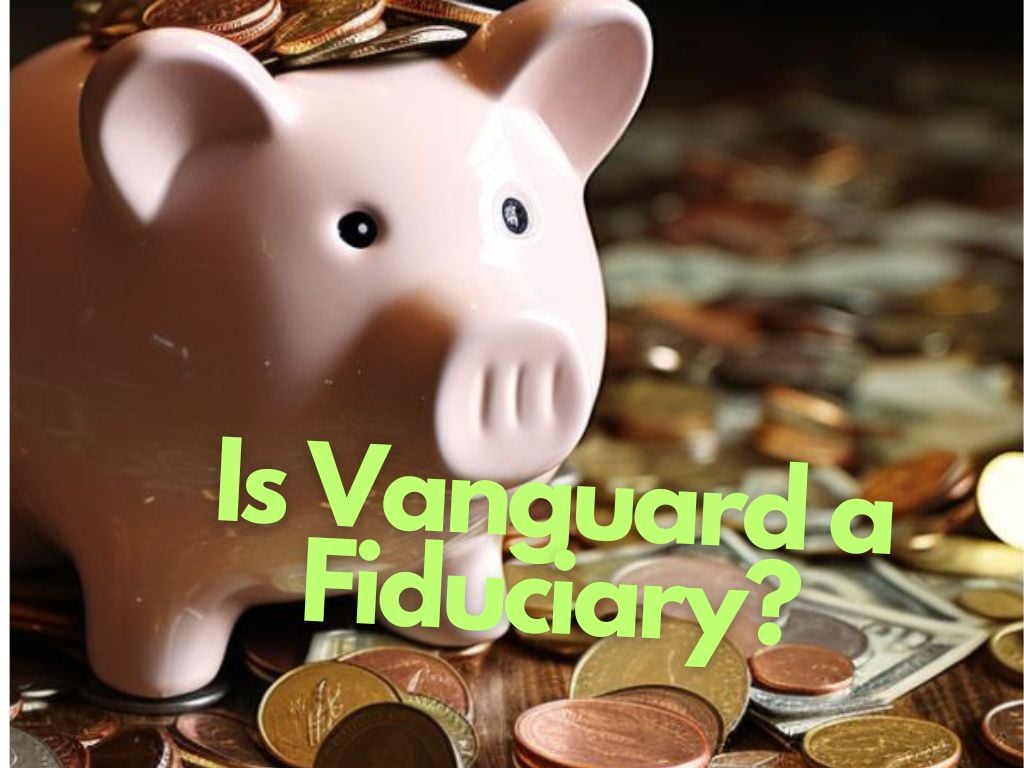When it comes to managing your hard-earned money, entrusting it to a professional who puts your interests first is crucial.
This is where the concept of a fiduciary comes in. When it comes investment management companies, Vanguard is among the very best in the entire world.
But, is Vanguard a fiduciary as well?
In this article, we will explore what it means to be a fiduciary, evaluate Vanguard’s fiduciary status, and discuss the benefits of working with a fiduciary for your financial future.
Is Vanguard a Fiduciary?
Vanguard, as one of the largest investment management firms in the world, holds a fiduciary status, making it a trusted choice for investors looking for a firm that will act in their best interests.
As a fiduciary, Vanguard has a legal and ethical duty to prioritize the financial well-being of its clients. Let’s delve deeper into Vanguard’s fiduciary status and what it means for investors.
Commitment to Fiduciary Standards:
Vanguard is renowned for its commitment to fiduciary standards. It operates under a fiduciary duty, meaning that it must act in the best interests of its clients and put their needs ahead of its own.
This commitment is embedded in Vanguard’s core values and is a guiding principle in everything they do.

Compliance with Regulation:
Vanguard is subject to various regulations and oversight to ensure that it adheres to fiduciary standards. The firm operates under the Securities and Exchange Commission (SEC) regulations, which require investment advisors to act as fiduciaries.
This regulatory framework ensures that Vanguard upholds its fiduciary duty and provides reliable and trustworthy investment advice.
Minimizing Conflicts of Interest:
Conflicts of interest can compromise a fiduciary’s ability to act solely in the client’s best interests. Vanguard actively manages and minimizes conflicts of interest to ensure that its advice remains unbiased.
The firm has implemented robust policies and internal controls to identify and address any potential conflicts that may arise.
Independent Oversight:
To further ensure its effective performance as a fiduciary, Vanguard has an independent board of trustees. The board oversees the firm’s activities and ensures that fiduciary duties are met.
This independent oversight provides an additional layer of governance, helping to make certain that Vanguard effectively meets its obligations as a fiduciary.

Transparency and Disclosure:
Vanguard is committed to transparency and provides clear and concise information about its investment products, fees, and potential risks.
This transparent approach allows investors to make informed decisions and better understand what they can expect regarding the firm’s fiduciary responsibilities.
Investor Education and Protection:
Vanguard goes beyond fulfilling its fiduciary duty by actively educating and protecting its investors. The firm offers a wealth of resources, including educational materials, webinars, and investment planning tools, to help investors make informed financial decisions.
Vanguard’s investor protection measures, such as comprehensive fraud detection systems and robust privacy policies, also ensure that investors’ interests are safeguarded.
Vanguard’s fiduciary status sets it apart as a trusted partner for investors. By aligning its interests with those of its clients, Vanguard demonstrates its commitment to their long-term financial success.
Working with a fiduciary like Vanguard not only offers peace of mind, but also offers participation in a relationship built on trust and ethical responsibility.
Factors to Consider when Choosing a Fiduciary
When selecting a fiduciary to manage your investments and financial affairs, several factors should be taken into consideration. Making an informed decision requires careful evaluation of the following aspects:
Experience and Expertise:
One of the key factors to consider is the fiduciary’s experience and expertise. Look for professionals or firms with a solid track record in the financial industry.
Consider their years of experience, qualifications, and any relevant certifications they hold.

A fiduciary with a diverse range of expertise and a deep understanding of investment strategies can provide valuable insights and guidance tailored to your specific financial goals.
Transparent Communication:
Effective communication is critical when working with a fiduciary. Look for a fiduciary who communicates clearly and transparently about their investment strategies, risk assessments, and potential outcomes.
They should be able to articulate complex financial concepts in a way that you can understand, enabling you to make informed decisions about your investments.
Ensure they are responsive and willing to address any questions or concerns you may have throughout the process.
Alignment of Values:
Consider whether the fiduciary’s philosophy and values align with your own. A fiduciary who shares your financial goals and ethical standards is more likely to understand your priorities and make decisions that align with your long-term objectives.
Take the time to discuss your values and expectations with potential fiduciaries to ensure a strong alignment.
Fee Structure:
Understanding the fee structure is crucial when selecting a fiduciary. Some fiduciaries charge a percentage of the assets they manage, while others may have a fee-for-service structure.
It’s important to evaluate the fees and charges associated with a fiduciary’s services to determine if they align with your financial goals and expectations.
Consider the value you expect to receive from their services and weigh it against the costs.
Regulatory Compliance:
Ensure that the fiduciary you choose operates in compliance with relevant regulations and standards. Check their licensing and registration with the appropriate regulatory bodies.
For example, in the United States, investment advisors must register with the Securities and Exchange Commission (SEC) or state securities regulators.
Verifying the fiduciary’s compliance with these regulations can provide additional assurance of their professionalism, accountability, and adherence to fiduciary obligations.
References and Reviews:
Seek references and reviews from other clients or professionals who have worked with the fiduciary. This feedback can offer insights into the fiduciary’s reputation, level of service, and overall client satisfaction.
Consider seeking testimonials or requesting references from the fiduciary themselves to gain a better understanding of their client relationships and performance.
By carefully considering these factors, you can make a well-informed decision when choosing a fiduciary.
Don’t hesitate to conduct thorough research and interview multiple candidates before selecting the one that best matches your specific financial needs and goals.
Investing with Vanguard: How it Operates as a Fiduciary
Vanguard’s investment approach focuses on long-term, low-cost strategies designed to benefit their investors. As a fiduciary, Vanguard seeks to minimize conflicts of interest and provide objective advice.
They have a comprehensive framework in place to ensure that their investment decisions are based on thorough research and analysis, emphasizing the long-term financial well-being of their clients.
To ensure compliance with fiduciary standards, Vanguard implements robust governance and risk management practices.
They have an independent board of trustees that oversees the firm’s activities and ensures that its fiduciary responsibilities are met.
Additionally, Vanguard is committed to full transparency, providing clear and concise information about their investment products, fees, and potential risks.
How a Fiduciary can Benefit an Investor’s Financial Planning:
Working with a fiduciary offers several benefits for investors. Firstly, fiduciaries provide personalized investment advice tailored to your specific financial goals and circumstances.
They take the time to understand your needs and develop a comprehensive plan that aligns with your objectives.
Beyond investment planning, fiduciaries can assist in areas such as estate planning, tax optimization, and insurance planning.
They can provide guidance on creating a comprehensive financial roadmap that takes into account your overall financial well-being, helping you make informed decisions and secure your financial future.

Frequently Asked Questions:
What is the difference between the obligations of a fiduciary and a broker?
A fiduciary is legally obligated to act in your best interests and avoid potential conflicts of interest, while a broker operates under a less stringent suitability standard.
How can I determine if an investment advisor is a fiduciary?
When considering an investment advisor, ask them directly if they are a fiduciary and what responsibilities they have towards their clients.
What are the consequences of working with a non-fiduciary advisor?
Non-fiduciary advisors may have conflicts of interest that could lead to biased advice or recommendations that benefit them more than you. Working with a fiduciary reduces the risk of such conflicts.
Conclusion:
When it comes to managing your investments, the importance of working with a fiduciary cannot be overstated.
Vanguard, as a trusted and reputable investment management firm, operates with fiduciary responsibility, putting your interests first.
By choosing a fiduciary, you can have peace of mind knowing that your financial future is in safe hands.
So take the necessary steps to secure your investments and partner with a fiduciary like Vanguard for a brighter financial tomorrow.



 Tags:
Tags:










